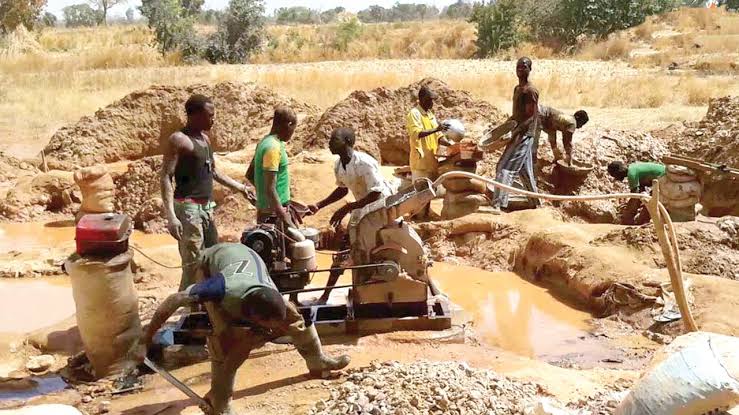Maureen Okpe
Relevant stakeholders in the mining sector has called for the involvement of host communities in the drafting and implementation of the Community Development Agreements (CDA), to ensure an adequate capturing of the basic needs of the people.
The stakeholders made the call at the West African Mining Host Communities Indaba summit, organised by Global Rights and African Coalition for Corporate Accountability(ACCA), with the theme “Enhancing Efficient Natural Resource Management for the Sustainability of Extractive Host Communities in West Africa” in Abuja.
Executive Secretary, Nigeria Extractive Industries Transparency Initiative (NEITI), Dr. Ogbonnaya Orji maintained that the emphasis should be on the communities understanding the content of the CDAs to enable them engage from the point of advantage.
Orji said, “our concern is that host communities should be should be part and parcel of the draft, so that they will work with them from position of streng so that the communities will not be giving them handouts.
“So if they are involved, and they know and they are enlightened, and they are informed, they will be able to ask informed questions and find out who to hold accountable if anything goes wrong.
“Agreement should not be written in such a way that host communities will find it difficult to understand. The agreement should also be based on need. Identify their needs, and then it should be reflected, we should point to the roads that could lead to identifying and addressing those needs.
“Also, the need for simplification and clarity of committed development agreements, and for civic participation of the host communities in the making of community development agreements.
“It shouldn’t be just a document but one that translates to impact in terms of schools available, clean environment, in terms of responsibility of who gets what and how to hold them accountable if anything goes wrong.
“So if they are involved, and they know and they are enlightened, and they are informed, they will be able to ask informed questions and find out who to hold accountable if anything goes wrong.
Speaking further Orji lamented that, “some of the CDAs were comprehensive, but when it comes to implementation, it becomes a problem because the communities for whom these arguments are drafted do not know the context and they don’t even know how to assess the document.”
The Programme Manager Heinrich Boell Foundation Tsema Edeh said, we understand that extraction especially coal mining is a water intensive activity. And so it is important that while we’re doing this extraction, the government private sector and every other stakeholder is thinking about remediation and mitigation strategies so that the resource communities do not suffer.
“Every Nigerian voice matters every Nigerian need to have access to livelihood, health, shelter, it all matters and what can we do to protect it?
“I think that is not everything we need to get because you have it doesn’t mean you have to use it.
“We have seen it happen in kogi and Gombe where coal mining is done, even in Niger and Zamfara and how that exponentially destroys the environment. So what can we do to remedy these, what can we do to prevent it,to ensure that local communities are protected
“The government can do better. A lot of times I think they complain that the manpower is small to supervise all these different pockets and because a lot of mining communities, are in serious rural terrain so they are having difficulty to navigate those places.
“So I think the government needs to work closely with community members, indigenous traditional rulers, and with CSOs because really, government can’t do everything. And it’s very important that we start to see government as partners are not just saviours.
She however expressed concern over mining activities springing up in more states. While asking in rhetorics, “Are we ready to deal with the after effects of mining? We’re still dealing with the Niger Delta area. Are we ready to deal with those after effects, we should really think through those procedures.”

